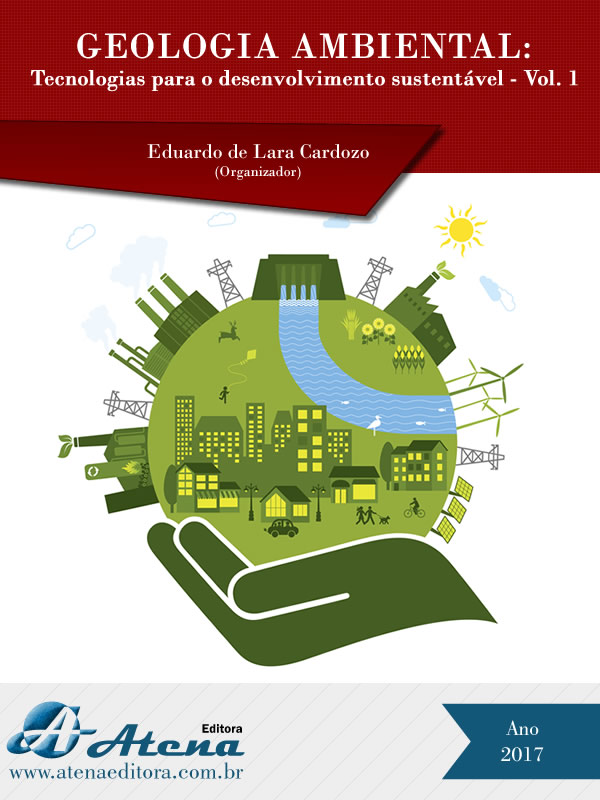
METODOLOGIA DE AMOSTRAGEM E CARACTERIZAÇÃO DO SEDIMENTO DO RIO URUSSANGA-SC PARA FINS DE DEPOSIÇÃO
Nos processos relacionados ao desassoreamento do rio Urussanga - SC.,
foi realizada a caracterização do sedimento em consonância à Resolução CONAMA
nº. 454/2012, determinando-se assim, as ações necessárias à sua disposição
final. Nesse contexto, o material a ser removido nos trechos superiores,
constituídos de areia com granulometria mais grossa não necessitariam de maiores
detalhamentos para definição de sua destinação, uma vez que a interação deste
material com o ambiente é reduzida. Por sua vez, o sedimento removido no trecho
intermediário e do baixo rio Urussanga inspiram cuidados adicionais, caso se tenha
a opção de depositá-los em água, uma vez que estes apresentam toxicidade à biota
aquática. Para conhecimento e utilização de estratégias posteriores, procedeu-se a
caracterização química do material com o escopo de identificar a melhor alternativa
de disposição final. O material a ser dragado foi amostrado utilizando-se draga
Birge-Ekman. Os resultados das amostras compostas foram comparados com a
Tabela III da Resolução CONAMA nº 454/2012 objetivando determinar se o
material é compatível com a disposição em águas (submerso) e com a Resolução
CONAMA nº. 420/2009 para avaliar a possibilidade de disposição em solo. Os
demais indicadores de qualidade ambiental, incluindo os resultados dos HPAs
(Hidrocarbonetos Policíclicos Aromáticos) estão posicionados abaixo dos limites
estabelecidos como Nível 1. A única exceção está relacionada à amostra obtida no
segmento amostral localizado no município de Morro da Fumaça, cuja
concentração de cromo no sedimento acusou 38 mg.kg-1, quando o limite
estabelecido para Nível 1 (água doce) é de 37,3 mg.kg-1.
METODOLOGIA DE AMOSTRAGEM E CARACTERIZAÇÃO DO SEDIMENTO DO RIO URUSSANGA-SC PARA FINS DE DEPOSIÇÃO
-
DOI: Atena
-
Palavras-chave: Sedimentos, Deposição Subaquáticica, CONAMA nº 454/2012.
-
Keywords: Sediment, Underwater Deposition, CONAMA nº 454/2012.
-
Abstract:
In the process to the dredging of the river Urussanga - SC., was carried
out to characterize the sediment in line with Resolution CONAMA. 454/2012,
determining thus the actions necessary for its final disposal. In this context, the
material to be removed in the upper reaches, made up of more coarse sand require
no further elaboration of the determination, since the interaction of this material
with the environment is reduced. In turn, the sediment removed the intermediate
section and the lower Rio Urussanga inspire additional care if it has the option to
deposit them in water, as these present toxicity to aquatic biota. For knowledge and
need for other strategies, we proceeded to the chemical characterization of the
material with the aim of identifying the best alternative for final disposal. The
material to be dredged was sampled using dredge Ekman-Birge. The results were
compared with Table III of CONAMA Resolution nº 454/2012 aiming to determine if
the material is compatible with the provision in water (submerged) and CONAMA
Resolution nº 420/2009 to evaluate the possibility of disposal at landfills. Other
indicators of environmental quality, including the results of PAHs (Polycyclic
Aromatic Hydrocarbons) are positioned below the limits established as Level 1. The
only exception is related to the sample obtained in the sample segment located in
the Morro da Fumaça municipality, whose chromium concentration sediment
accused 38 mg.kg-1, when the limit for Level 1 (freshwater) is 37.3 mg.kg-1.
-
Número de páginas: 15
- Geovana Viana de Oliveira


